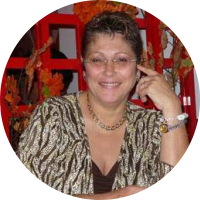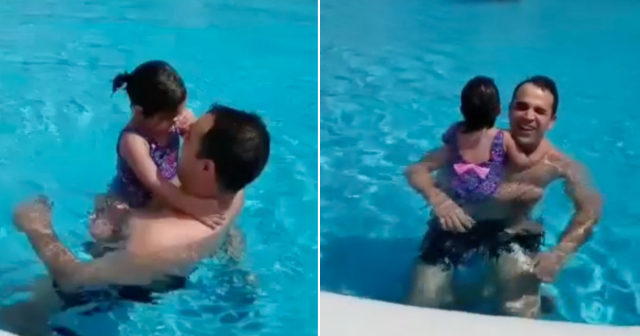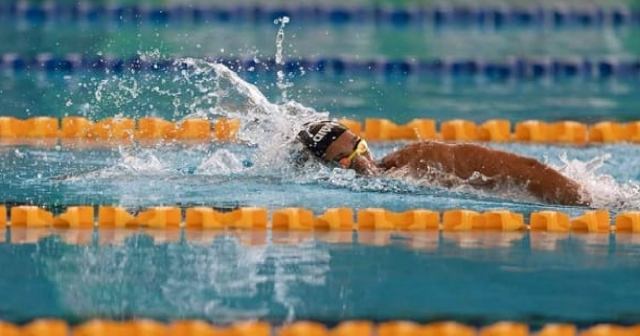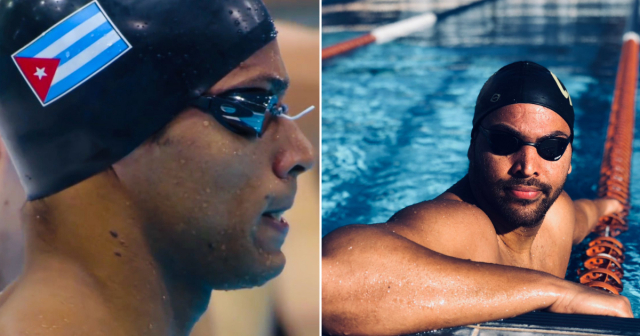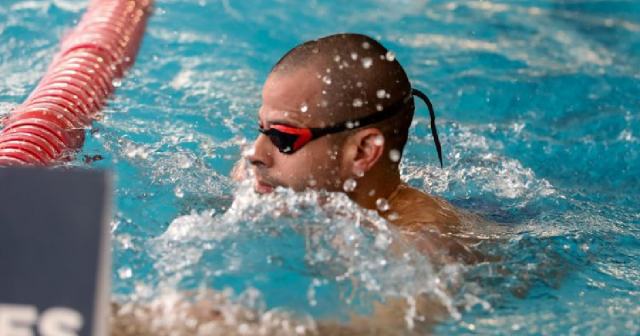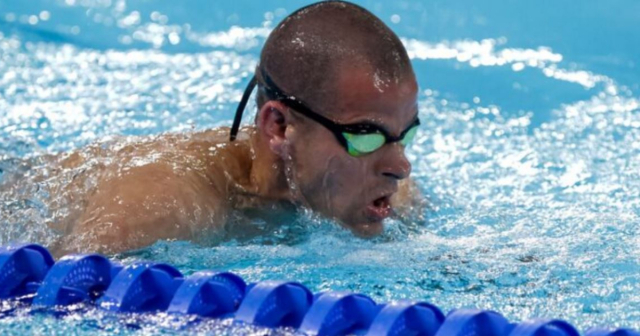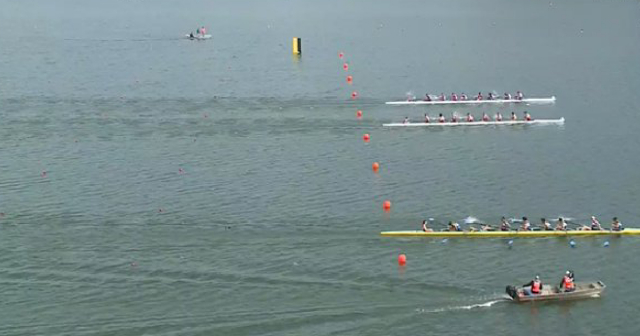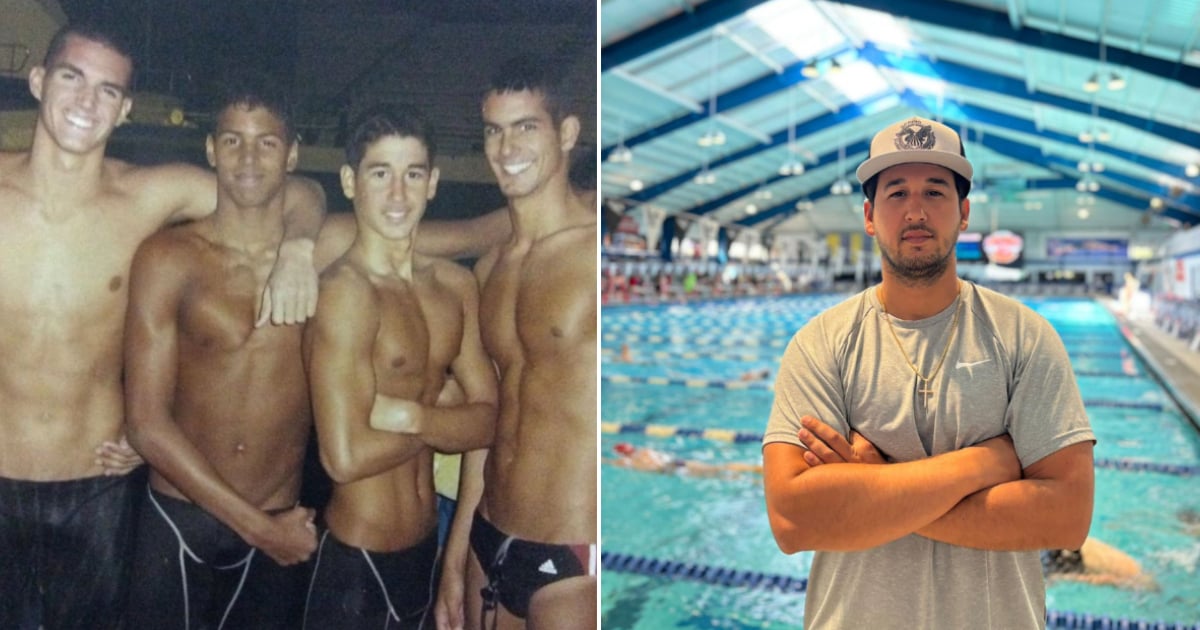
Anywhere you can meet a friend, an acquaintance; In this case, in the midst of the hustle and bustle of coming and going from an airport, I had the joy of hearing a powerful male voice say: “Shall I help you, teacher?” That voice fit perfectly with the muscular body of Santiago Gonzalez, Santiaguito, a swimmer on the Cuban national team that I have known since I was a child.
I wanted to inquire about his life and the man born in Cienfuegos in 1990 gladly agreed to answer my questions, the first of which is about his current life.
I am a coach for the North Palm Beach Swimming club based in that city in Florida. Last week I was in charge of 17 boys divided into two categories; 11-12 and 13-14 years old who competed in the NSCA (National Clubs Swimming Association), a competition held at the excellent Rosen Aquatic Center pool complex in Orlando, a facility where several world records have been broken.
The NSCA, in Spanish the National Association of Swimming Clubs, is a private, non-profit organization that was officially established in 2013 for swimming clubs that have professional coaches; In this case, I am one of them.
41 teams participated and two of my students, Tessa Broedell and Feagin Kaminski, were selected to join the junior national team and will be present at a training base at the United States Olympics camp. Both Tessa and Feagin as well as the little twelve-year-old Gia Euseppi and Trace Colton were the highlights for my club.
Speaking of swimming pool complexes, what do you know about the current state of the Baraguá swimming pools and the “Marcelo Salado”, a pioneering and flagship facility of Cuban swimming and which now does not even belong to INDER?
You know something? That question arouses total indignation in me, not because of the question itself, but because of the answer I have to give it because it is the truth. I remember that when I entered the National School in 2001 there was already a well-founded rumor that they wanted to take it away from us.
Every year, threat after threat, we hung on a tightrope. It was practically certain that they were going to send us to the CEAR Cardín, which you know is in the eastern complex. It is difficult, very sad, for someone like me who swam in the Marcelo pool, with moss, mazamorra, cold (cold water), broken lanes scratching our backs, with hardly any lights to swim in at dawn.
I tell you more. You practically had to become superheroes to enter those frozen pools. Remember that cyclone that took away our roof and windows? We athletes, before the start of the school year, were the ones who painted; those voluntary works to remove the dungeon from the walls… to at least have that facility that was our house, a little more welcoming, more pleasant!
When Rodolfo Falcón was appointed national commissioner, after graduating in law, he worked very hard to improve the conditions of the school and of us, and we must recognize that things improved and thus kept the Marcelo open. We all knew that going to Baraguá was the end of swimming, which is what is happening.
It is a lack of respect what they have done to us. Every year we cried for a budget to paint walls, fix the classrooms, to improve the lives of the students there; school hit by salt because it faces the sea, constantly deteriorated; We lost a gym facing the sea, the physiotherapy area was a disaster, the 25 meter pool was empty, there was no chlorine for both of us.
And it turns out that only three months after the school was taken away from us, the tennis courts were functioning, the pools were in service and painted, the lobby was beautified with the addition of a restaurant. Can anyone in their right mind understand that for swimming, Is it necessary to beg for a measly budget to improve living conditions somewhat and in three months, everything will be ready for a new purpose unrelated to sport?
And what they feared happened, they “went” to the Baraguá complex and the last I knew was that they even painted the tiles and the athletes came out painted because in addition to the fact that the tile is not painted, they used normal paint. Did you find out? Compare the times because I think now is worse.
I was from 2001 to 2010 at Marcelo; Luckily I never swam in the eastern complex although I can tell you several moments that could cause hilarity if they were not so sad.
Once, there was no way to heat the water in the swimming pools and someone brainy had the idea of removing the tiles from the roof. Of course, the facility is designed with a roof, what happened? The walls cracked, the starting blocks became loose, the pool suffered irreparable damage. Then a counter-order came and the tiles were put back on when the damage was done.
What has caused all this? The total anemia of Cuban swimming that in the Marcelo Salado Cup a start is not completed; There are not even 50 swimmers in all categories and styles, and only three can set records at the Central American level.
And since swimming left Marcelo, the nation in Cuba ended. I'm gonna put an example; in the golden years of swimming (80s-90s): Pedro Hernández, Rodolfo Falcón, Imaday Núñez, Neisser Bent, Mayito González, Marcos Hernández, Gunther Rodríguez came from an enrollment of about 300 swimmers. What's more, only two were able to reach the Olympic podium.
Two of between 300-400 swimmers, how many will come out of 50, 40 or 20? Mathematics doesn't lie. Add to that the deterioration of the country's pools, which currently do not reach seven for swimming.
I remember those Marcelo Salado Cups in 2003, 2004 and 2005, the number of swimmers who came from all over the country. All lanes covered, qualifying races had to be done. Athletes came from Aruba, Mexico, Barbados. It was a show of about 400 athletes. Now there are plenty of starting blocks. It's kind of depressing.
Now there is Andrea Becalli, where can she go alone, without support, without conditions, no matter how good she is? Elizabeth Gámez is on a scholarship in France. There are no swimmers anymore and very soon there will be no coaches either. When Lulú retires, Cuban swimming will come to an end and the worst thing is that no one cares.
How did you get into sport, always swimming?
I came to sport because of my parents; It turns out that I was a very restless child and sports were the best way to tire me out. Swimming was the first option, I liked it and also my mother, a synchronized swimming athlete in her youth, guided my sister and me towards this beautiful sport that has been and is my life.
Moving to Havana when I was barely five years old, I began to take my first strokes precisely in the Baraguá pool complex because we lived in Eastern Havana and at that time, wow, look how it rained! In addition to high performance, there were teaching groups for early ages.
There my first coach was Rigoberto Duque, who not only taught me how to swim but also took me to the doors of the national team, where I entered when I was eleven years old. He convinced me that I could; Today we maintain a good friendship.
You went hand in hand with Duque to Marcelo. Who trained you there?
It was not easy to get in, they had very demanding tests of all kinds. At eleven years old, a bright horizon opened up for me; To begin with, I had two excellent coaches: David del Cueto, my second father, and Dagni Olarde, current coach of the Barbados national team.
I rose through the ranks, luckily always within the Marcelo and from those years I have very nice experiences because despite the difficulties (nothing like what there is today) we were happy, it was an honor to be an athlete from the National Swimming School . My coach was Lulú, Luisa María Mojarrieta, with whom I learned a lot as an athlete and then, after my retirement, between 2010 and 2013 as an assistant coach.
Main competitions you attended, did you feel good with your teammates in the relay?
I was not a Julita star but I attended the 2004 Central American Games by categories in Mexico, the 2007 Alba Games, National Championships and CCCAN Tournaments held in Havana.
In 2008, I was qualified to attend the Short Course World Championships in Manchester but decided to withdraw. This was also influenced by an absurd sanction that prevented me from going to the 2007 Pan American Games in Rio.
What can I tell you about the relays? I took part in several, always encouraged by my soul brother Pedro Medel, also a backstroke player. In general we all got along very well, we encouraged each other. I was roommates with Pedro Medel and Julio Carrillo and believe me we are like brothers.
What was your main event?
The 200 meter backstroke. My best results were in short course pools.
We already know that you work as a professional trainer at the North Palm Beach Swing club, but how do you get there?
In 2014, upon graduating from the Higher Institute of Physical Culture in Havana, I traveled to Jamaica as part of an aquatic ballet group made up of swimmers, polo players, divers and synchronized players to do shows in hotels; When they returned a year later, I stayed and had the opportunity to work with the national team of that Caribbean country.
However, my dreams were not there and I used my time to learn and turn Jamaica into a springboard to realize my dreams. Thus, in 2019, I took advantage of my visa since many swimmers came to competitions in the United States and currently, as you know, I train children and adolescents at the North Palm Beach Swimming club.
I'm very happy. I have athletes who are among the first nationally in the 13-14 year old category; Every day that passes I rejoice more about the decision I made and I dream of having students who can compete in the Olympic Trails and since dreaming costs nothing, who says that anyone will achieve the Olympic dream? That is my biggest dream: to take an athlete to the Olympic Games!
Swimmer you admired?
Since I was little, Rodolfo Falcón was my inspiring figure; Look, I'm a supporter of him. When he won his Olympic silver in Atlanta I was starting out in this beautiful sport. He inspired me as a person, as a warrior, as a great swimmer. I also followed Neisser Bent a lot.
Do you miss Cuba?
Of course Cuba is missed. And the saddest thing is that all Cubans, not just athletes, have to go in search of a future because the truth is that we all have only one life and everyone wants to live it as best as possible. I don't regret leaving; I don't regret living in this great country and doing what I like.
I thank you very much for this interview; It has given me the opportunity to express, to share my way of thinking and doing and I would like to add that I am grateful for everything I have achieved in my life to my father, who died three years ago and that he would be very proud to see me achieve success in this race in this great country. My father was my guide, my greatest support and my number one fan; Life took him from me unexpectedly but everything I do is trying to honor his memory.
What do you think?
COMMENTFiled in:
